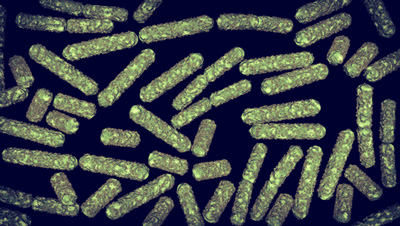Helperby’s new approach to fighting resistant bacteria
Posted: 23 May 2016 | | No comments yet
Helperby is about to begin clinical studies of a completely new approach to fighting resistant bacteria following a positive meeting with the FDA…


Helperby Therapeutics is about to begin clinical studies of a completely new approach to fighting resistant bacteria following a positive meeting with the US Food and Drug Administration (FDA).


The FDA gave guidance that HT1002, Helperby’s intravenous therapy for highly resistant bacteria, may receive fast track designation.
Helperby’s HT1002 programme combines an existing, approved antibiotic with a second drug, a small molecule antibiotic resistance breaker (ARB). Helperby ARBs have been shown to have a highly synergistic effect with traditional antibiotics and represent both a new drug discovery platform and a route to rescuing traditional antibiotics.
Helperby intends to begin its HT1002 clinical programme this year targeting complicated urinary tract infection (cUTI), a condition particularly affected by widespread antibiotic resistance including carbapenem-resistant Enterobacteriaceae (CRE) and multi-drug resistant (MDR) gram-negative bacterial infections.
A Phase I trial in healthy volunteers is expected to be initiated this year, and will be followed next year by a Phase II/III multi-centre trial in patients with potentially MDR cUTI.
Overcoming resistance in gram-negative bacteria
The proprietary combination of ARB and traditional antibiotic to be used in the HT1002 clinical programme has been shown in preclinical studies to overcome resistance in gram-negative bacteria, such as E.coli and Klebsiella, two bacteria that have been rapidly developing resistance to modern antibiotics.
The HT1002 programme is based on the discovery by Professor Sir Anthony Coates, Helperby’s founder and Chief Scientific Officer, and Dr Yanmin Hu that compounds that target dormant bacteria could be used in combination with existing antibiotics to overcome resistance in multiplying bacteria. He called these compounds ARBs with the specific objective of targeting the most resistant bacteria, which are threatening the future of modern medicine.
Helperby has a portfolio of proprietary ARBs, comprising a range of antibiotics and non-antibiotics, which can be used in conjunction with existing antibiotics as potential combinations to overcome resistance.
The urgent need to combat drug resistance was highlighted recently in the UK Government’s Review on Antimicrobial Resistance, chaired by Lord O’Neill, whose final report and recommendations were issued on 19 May 2016. In his foreword, he wrote “that tackling AMR is absolutely essential. It needs to be seen as the economic and security threat that it is…” His recommendations included “improving existing” drugs for the treatment of antimicrobial infections.
Professor Sir Anthony Coates, Helperby’s founder and Chief Scientific Officer, said: “The threat to modern medicine from antibiotic resistance cannot be exaggerated. Our work to date has shown that our proprietary approach of using existing antibiotics in combination with novel antibiotic resistance breakers has the potential to overcome this resistance. Through this approach we believe that we can rescue existing antibiotics from resistance.”







